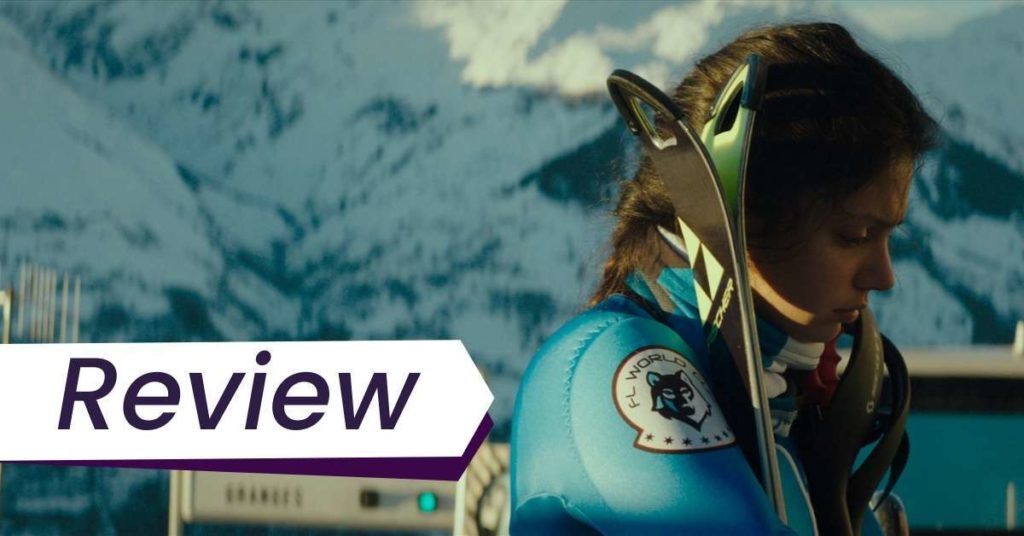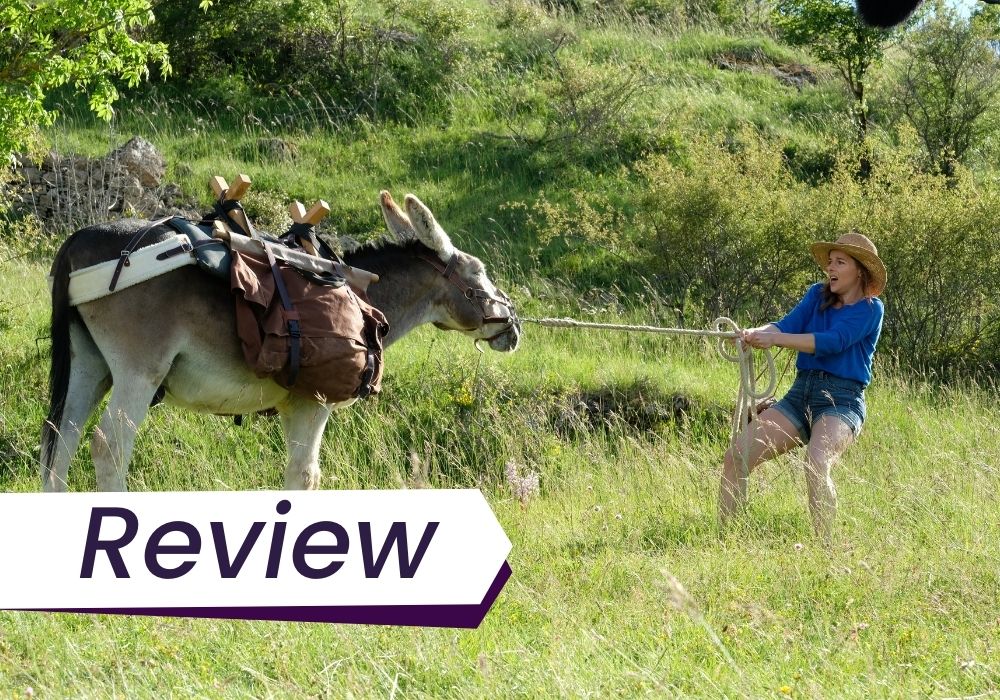Charlène Favier’s Cannes-selected debut, Slalom, is a tense pas-de-deux between a 15-year-old professional skiing star (Noée Abita) and her coach (Jérémie Renier). The film screened at Cinemania.

Discover one film you didn’t know you needed:
Not in the zeitgeist. Not pushed by streamers.
But still easy to find — and worth sitting with.
And a guide to help you do just that.
Charlène Favier’s Cannes-labelled directorial debut, Slalom, is a tense pas-de-deux between a 15-year-old professional skiing star, Lyz (Noée Abita), and her coach, Fred (Jérémie Renier). Like Una, the film is a complex exploration of the dynamics of an abusive relationship between a man in power and a child in his charge. Though it deals with sexual abuse, the film is most interested in Lyz’s perspective, avoiding judgement or sensationalism, while making Fred human if reprehensible.
Effectively abandoned by her mother, who has accepted a job in another city, Lyz begins training at a school designed for professional skiers under Fred’s guidance. Living alone in her apartment, and without any real support network at her new school, Lyz initially struggles with Fred’s gruff manner. But when she starts succeeding on the slopes, he warms up to her, giving her special attention, training, and encouragement.
Lyz is at the age when sex is on the mind, and her fascination with Fred toggles between sexual interest and a search for a father figure. Early in the film, she spots him naked in the communal showers, and stares at him a moment too long. When trying to act her age and attend a party thrown by fellow teenage skiers at the school, she decides to impulsively kiss a boy — one she knows had been previously sexually friendly with her one friend, Justine (Marie Denarnaud). When the boy rebuffs her advances for more, she isolates herself further from fellow students and seeks more approval from her coach.
At first, it seems like Fred’s intentions are entirely honourable. He lives with his girlfriend, Lilou (Marie Denarnaud), who also teaches at the school, and he’s never alone with any of the team for long. Lyz may stare longingly at him, but he’s careful to avoid extended eye contact. Even in an early scene, when he has her strip and weigh herself in his office, he averts his eyes, staring at the computer as he inputs numbers. It seems that Lyz’s confusion about what she wants from him may be one-sided.
Of course, it isn’t. Every step of the way, Fred has been priming her, even if he’s not aware he’s doing it himself. Withholding praise and then giving praise is a power move, as is giving Lyz extra attention and withholding it. One night, they go out for dinner to a fancy restaurant, alone, on what feels eerily like a date, to discuss their training plan. On the way home, he takes her driving on a track in the snow where she can drive fast and recklessly, and encourages her to do so. It’s dark, they’re alone, and suddenly he’s desperately asking her for sexual favours. She’s curious and confused, and he’s her coach, so she complies, but Favier keeps her camera focused on Abita’s face and her uncomfortable reaction.
By the next day, Fred goes cold, and we and Lyz wonder if it was a one-time slip, but of course, playing hot and cold is part of his strategy. And Lyz doesn’t quite know how to differentiate his praise for her as a skier and his sexual interest in her, or his care for her as an athlete or his affection for her as a lover, a word that doesn’t accurately describe the abusive dynamics in their relationship. But part of why she lets it continue is because she’s not sure whether this is just how lovers behave and if this is what she wants.
Favier’s direction never loses sight of Lyz’s emotional turmoil, nor does it ever become lurid. All of the scenes of sexual abuse stay focused on Lyz’s perspective and reaction, and Favier never lingers on Lyz’s body to mimic Fred’s gaze. At the same time, Favier understands that abuse is confusing because sometimes the abused gets some pleasure from it — sexual or otherwise. Favier expertly navigates these difficult waters without ever blaming Lyz, while acknowledging her ambivalence. Lyz is mostly confused about what Fred wants from her, sometimes flattered by his attentions and sometimes hurt by when he goes cold. The first time they have intercourse is followed by a lengthy scene of Lyz cleaning herself up in the bathroom afterward, dealing with her inner turmoil, and looking in the mirror as she steels herself to put on a strong face, to try to take control of the situation when she rejoins Fred.
Favier also gets terrific performances from both leads in difficult roles. Noée Abita, who first came on the scene in Ava, and was subjected to an under-written part in Genèse, is truly excellent in Slalom, now that she’s given material worthy of her talents. Favier regularly lingers on Abita’s face in scenes of sexual abuse, and her reaction to the aftermath. Lyz’s hurt and her need to keep up a strong façade are brilliantly executed by Abita and directed with sensitivity by Favier. Renier is equally good as Fred, a smarmy manipulator who hates himself for what he’s done — which causes him to play cold — but not enough to keep himself from doing it again. Renier makes Fred’s self-loathing human, even if we know that he’s done this before, and he’ll do this again.
Charlène Favier’s Slalom is still seeking distribution in Canada, US, and UK.
You could be missing out on great films like Slalom at virtual cinemas and film festivals near you.
Subscribe to the Seventh Row newsletter to stay in the know.
Subscribers to our newsletter get an email every Friday which details some of the best new streaming options in Canada, the US, and the UK.
Click here to subscribe to the Seventh Row newsletter.




